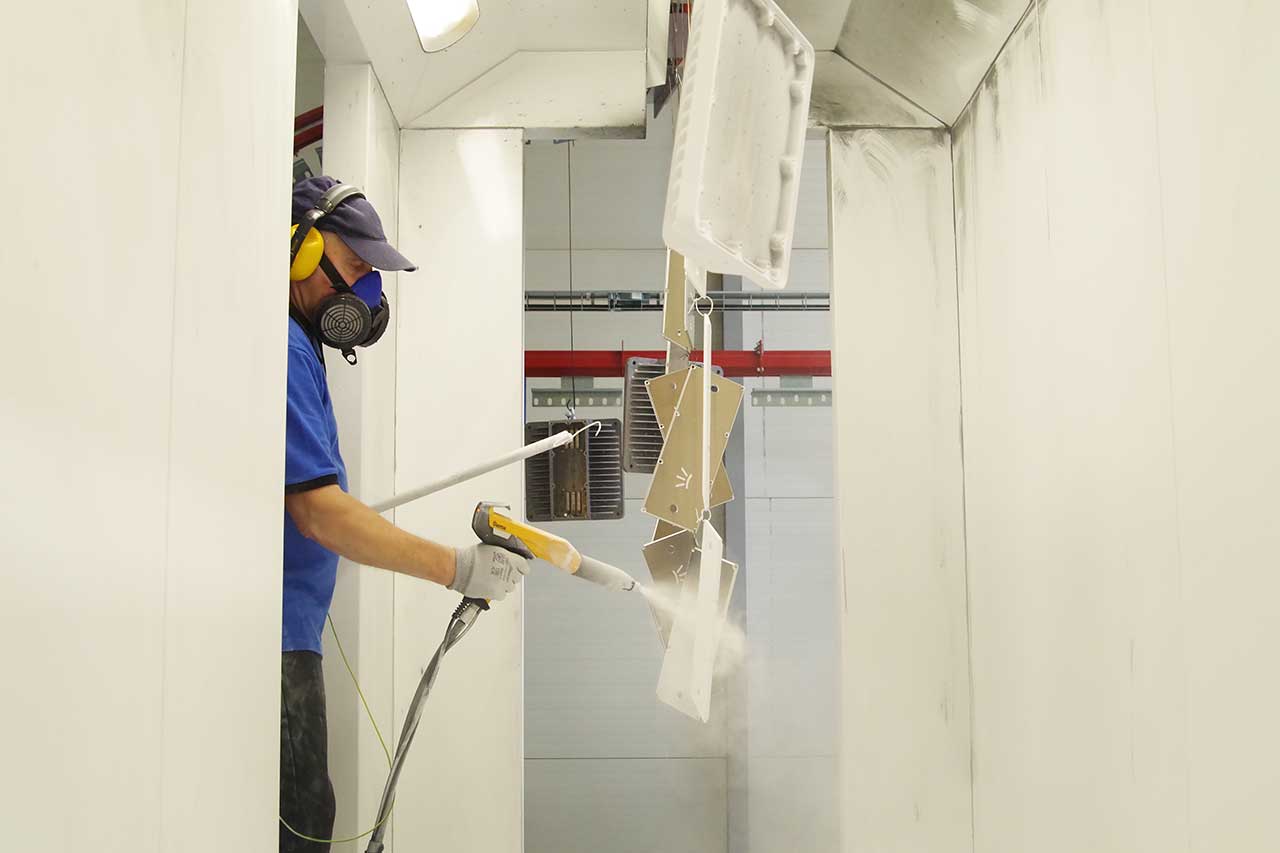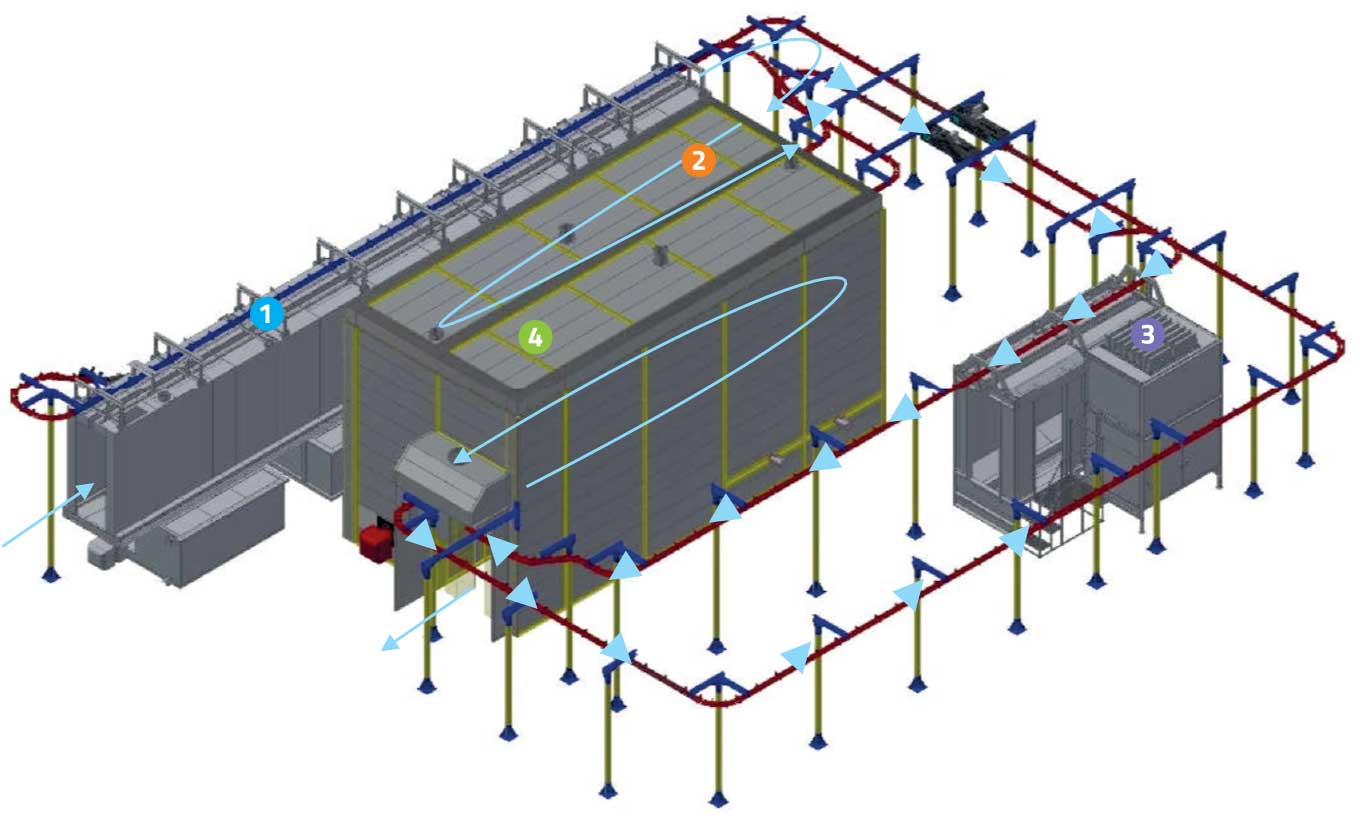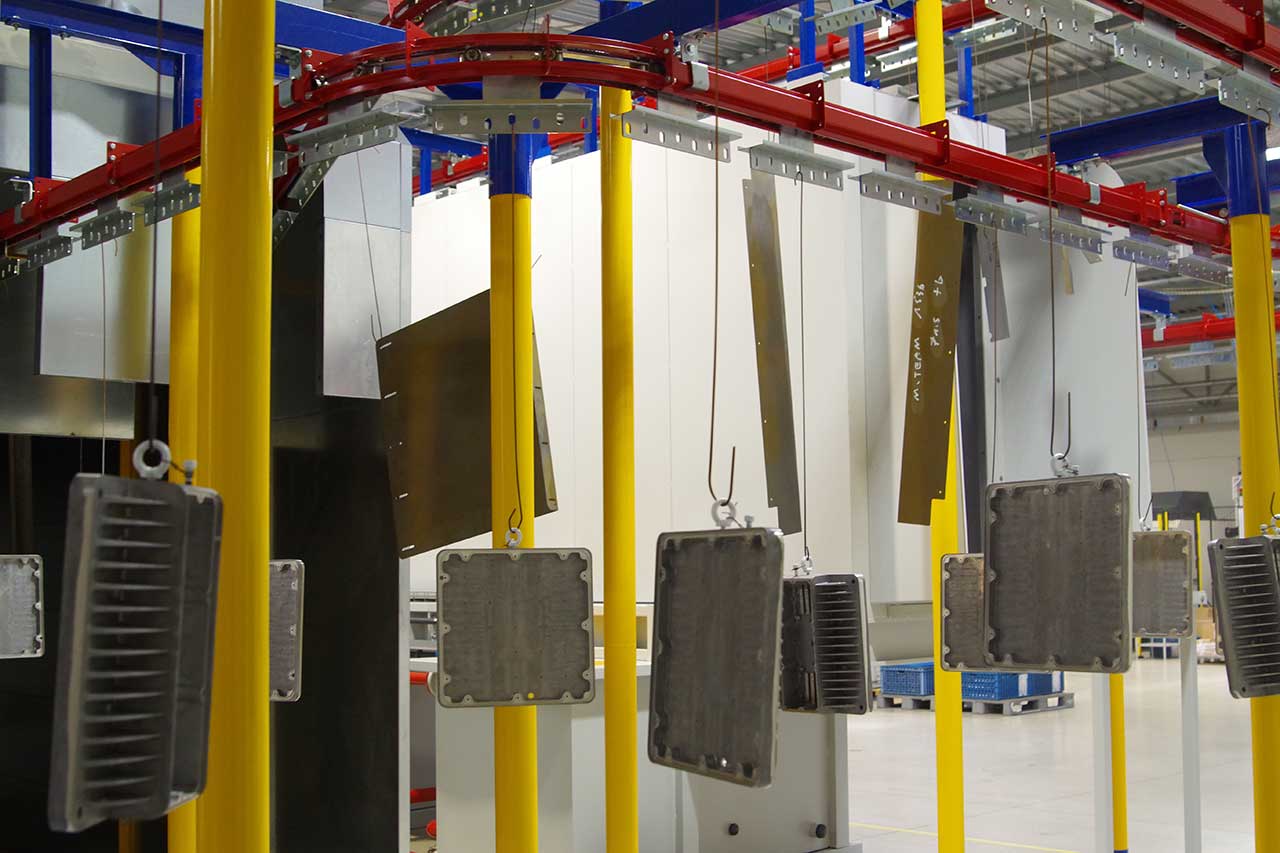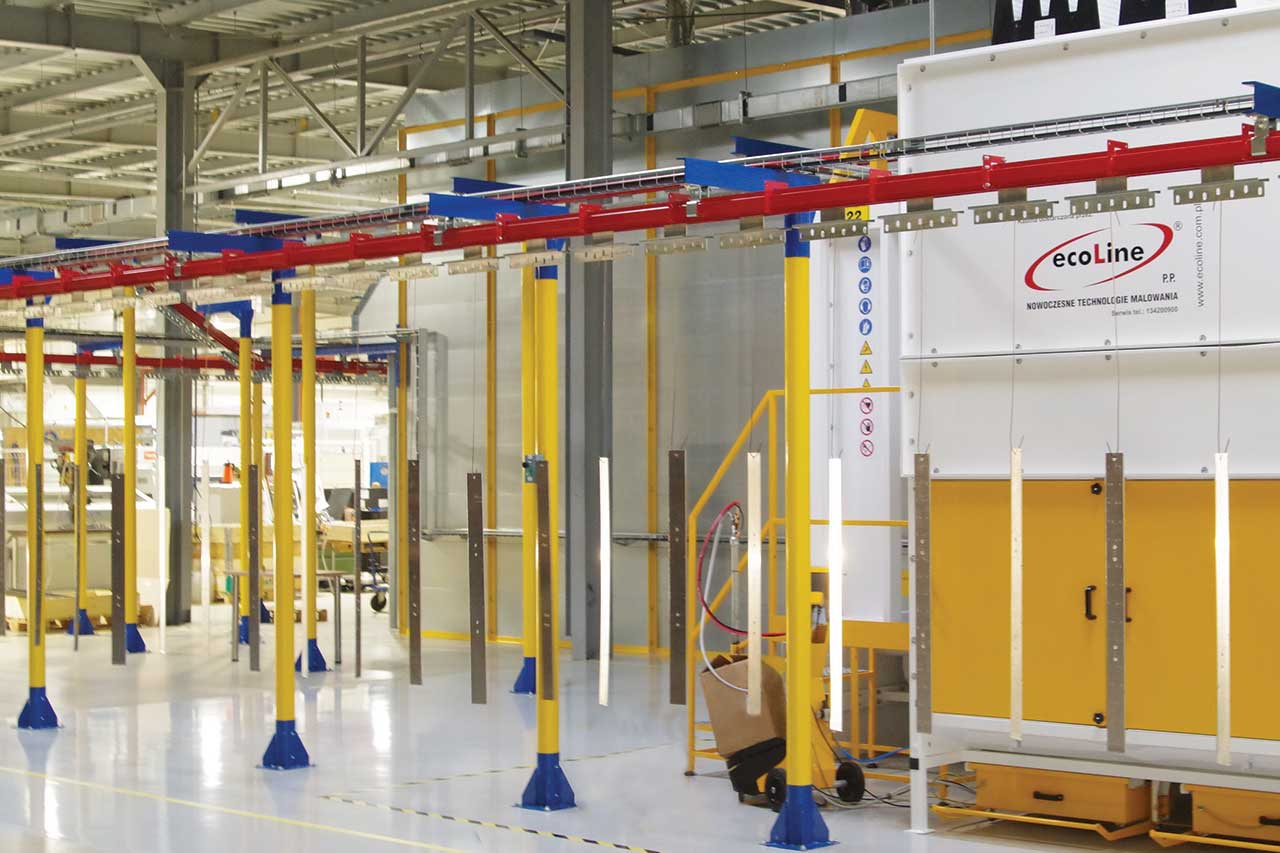The devices that make up our powder coating line meet all environmental standards and ensure energy efficiency at highest level. All work-pieces to be powder-coated are suspended on a rotary conveyor, which ensures continuous operation of the entire painting line without unnecessary interruptions or downtimes, optimizing the entire process.
AUTOMATIC POWDER COATING LINE
WITH WORK-PIECE SURFACE PREPARATION


Diagram of electrostatic painting technology

The elements to be powder coated pass through a complete technological cycle consisting of the following steps:
1. WASHING
2. DRYING
3. POWDER COATING
4. OVEN POLYMERIZATION
1. TUNNEL FOR SPRAY SURFACE PREPARATION
All components to be coated are introduced into the tunnel, where they undergo 4 stages of hot washing and washing at ambient temperature. The parts enter a tunnel where they are chemically prepared for the powder painting process.
The purpose of this operation is to remove all contaminations from the surface of the parts. The washing bath is not only heated by burners or heat exchangers, but also enriched with degreasing agents. The chemical composition of the bath is constantly monitored and, if necessary, it is regenerated or replaced.
2. DRY-OFF OVEN
The dry-off oven with forced circulation of warm air and a built-in generator, consists of two chambers. The first chamber is equipped with an air exchanger and the second chamber is a traffic zone. The oven works on the principle of forced hot air circulation. The elements after going through the washing phase are dried-off by hot air jets and warm air circulation provided by a fan system.
3. POWDER COATING BOOTH
The next step is manual application of the powder paint in the spray booth. After leaving the drying oven, the parts are cooled down and wait for spraying. They drive into the booth where the paint is applied manually with a spray gun. It is also possible to apply the powder in an automatic cycle with the use of painting robots. To enable better suction of excess powders during operation and to facilitate cleaning, the construction of the cabin has been designed in a way to eliminate the phenomenon of powders sticking to the side walls of the booth.
4. CURING AND POLYMERIZATION OVEN
The last stage of the powder coating process adheres the powder to the metal product. A powder coating conveyor line will move the batch from the coating booth to an appropriately heated bake oven for curing. Heat allows the polymer system to permanently bond to the metal and offer a sleek, uniform and durable coating without drips or blemishes. The product leaves the oven and cools before leaving the powder coating line for packaging or assembly.
Due to the fact that the powder paints we use are solvent-free, no vapours are released. The oven can achieve a temperature of up to 250°C, this is adapted to the type of elements painted and the powder used. Modern powder paints are characterized by very good thermal insulation and our paint shop enables polymerization at temperatures as low as 180°C, which significantly reduces energy consumption and makes the process even more efficient and environmentally friendly.
OUR TECHNICAL CAPABILITIES
EFFICIENT AND ECOLOGICAL POWDER PAINTING
By commissioning this process to us you will:

ACHIEVE PERFECT
SURFACE
Powder coating is the most effective and durable method of coating metal elements, which perfectly protects the surface against corrosion.

SAVE
TIME
The element is painted and completely dry after approx. 1 hour. Time savings are possible due to the continuous operation of the paint shop via its rotary conveyor. We eliminate the idle time associated with heating up batches of parts in the oven, every few minutes a dry part comes out of the line and it is ready for packing.

SUPPORT AN ENVIROMENT-FRIENDLY TECHNOLOGY
Powder coating is “greener” than traditional technologies. Powder paints are utterly safe for the natural environment and no harmful solvents are used during the painting process.
Cooperation with a modern powder paint shop will provide you with latest generation technological solutions at attractive prices.
LOOK NO FURTHER, YOU HAVE FOUND THE RIGHT PARTNER!



